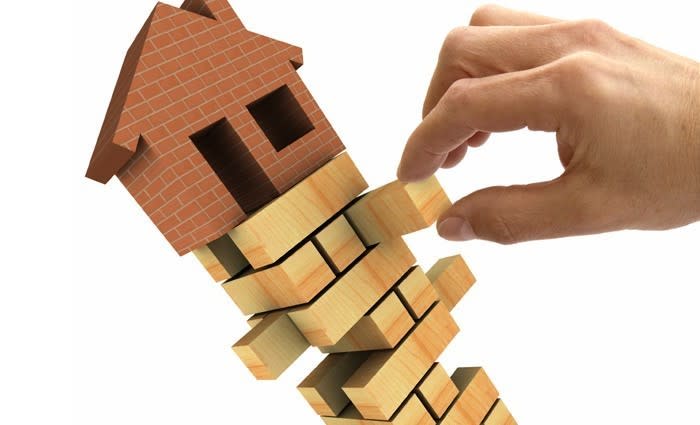A broken system: investors are laughing all the way
One does not need to be Albert Einstein to see that for decades and decades the Australian real estate industry has been running blind – so it's very interesting to observe that now a cavalcade of seeing eye-dogs have been brought in to add some vision and clarity.
Having said that, there is plenty of work to do, and the Federal and State Governments will have to do plenty of the heavy lifting for a change. Again, the spotlight keeps shining away from the main accelerants that have seen investors not just entering the market but dominating it, coupled with overseas investors lunging at every off-the-plan sale that hits the market.
Australia simply does not have enough property to meet demand given our population keeps increasing at a growth rate of 1.7%. In the year to March 2014 the Australian population increased by 388,400 to reach 23.4 million.
Instead of continually slugging the taxpayers, overseas investors should be hit with a surcharge and the investors who prefer to keep their properties vacant should be hit with a Vacancy Tax.
The Senate Inquiry into overseas investors has shown glaring holes in how the Foreign Investment Review Board operates (or attempts to) with a staff of under 10 people. Again, this highlights that Australia does not even have a Housing Minister – so who then is taking responsibility and managing this?
Yes – it's reasonable to suggest that Australia is fast becoming a country of landlords and renters, although one needs to ask, had the Rudd Government implemented the recommendations from the Henry Tax Review, how would the Australian property landscape look today? We will never know – however, isn't it time we had this conversation again?
We have the David Murray Financial System Inquiry deadline now just over two months away and there is much speculation about how much they will recommend the banks keep in their piggy banks. How much capital should the banks hold in the event of a property market downturn to avoid the domino effect?
This week the worst kept secret was all but confirmed, where the Reserve Bank of Australia (RBA) and the Australian Prudential Regulation Authority have almost certainly agreed to introduce macro-prudential policies in an attempt to ease property prices.
It's a start. However; the measures will hardly put a dent in prices.
This article continues on the next page. Please click below.
To really have a closer examination; look no further than the report filed last year by Saul Eslake: 50 Years of Housing Policy Failure.
In a nutshell, he writes that cynical politics had kept policies in place that made it harder for people to buy their first home.
"While political parties and governments profess to care about first home buyers, the reality is that in a typical year fewer than 100,000 people succeed in attaining home ownership for the first time; whereas there are some 5.8 million households (and over eight million people) who already own at least one property."
This week RP Data revealed that the number of properties listed for sale in all capital cities, excluding Perth, is 11.6% lower than in September 2013. So introducing macro-prudential policies will hardly affect investors who are borrowing against their existing property portfolios.

Property investors have entered the market with "eyes-wide-open" given that just a few years ago they witnessed firsthand what happens to property prices when we inherited the Global Financial Crisis (GFC) – this is a long term investment. Many are taking a safer punt on property and have walked away from the share market (which has had a shocking run of late) to lock and load into bricks and mortar.
There will be major changes ahead for Australia's tax system where many of the changes will be made to the property taxation benefits that investors are currently taking full advantage of. It's a win-win for the property investors given with all new taxes they are generally retrospective so the investors will be working from a 100 base – history shows this very clearly.

On the assumption that eventually the GST will be increased to 15%. construction will slow down further, which is exactly what happened in Australia previously following the introduction of the GST.
The developers wear the GST so that it then comes off their respective bottom lines by significantly reducing their profit margins – GST on construction has been a dismal failure which clearly explains why construction is in decline.
So there is a lot of method to the present investor madness – where for those looking at this from a different perspective the vast majority are on a win-win property formula.
No doubt they will be smiling even more when the read a recent article in The Economist, Birth Right – Where to be born in 2013, where Australia was ranked second from the top.
